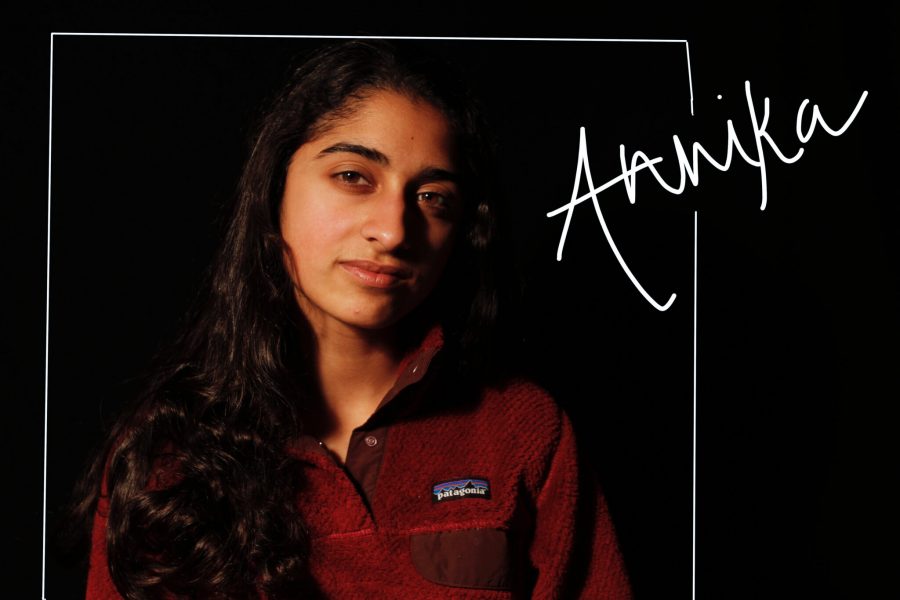The following is a direct response from a student following the release of an MIHS Islander article discussing the ethnic makeup of MIHS teaching staff.
In 12 years, I have had one teacher of color.
From elementary school through junior year of high school, all on Mercer Island, that is one teacher of color out of more than 30 teachers. I didn’t think this was unusual, largely because I hadn’t realized that having teachers of color was a possibility.
In 12 years, I have never had a teacher with my cultural background.
I didn’t think this was strange because I was used to having white teachers. In my experience, my school and home environments were distinct, and I didn’t give the lack of cultural overlap in my school environments a second thought.
Only later, when I became a teenager, were my eyes opened to the importance of diversity in schools and in my life.
My teachers have been my educators for reading, writing and arithmetic. My family and family friends serve as my educators in cultural experiences.
But why can there be no intersection of these realms?
I realized my frustrations with the lack of classroom diversity through the culmination of many small, often recurring, moments: when I am treated as an ambassador to Indian culture, as the Hinduism expert despite not being Hindu, or told that my good grades are a result of my ethnicity and that my food resembles “rabbit food.”
I also at times feel disconnected from American cultural references, even though I am American. For example, unlike the rest of my English class, I didn’t learn who the Bee Gees were from my parents. But I do know who Lata Mangeshkar is.
I feel a stronger connection to the lessons I have learned from my family and role models with the same cultural background as me. I travel to India to visit my extended family each year, and each time I find my perspective enriched and expanded by listening to my relatives’ stories. I feel that my family and family friends understand me – they get my food and music tastes, my conversational style and my humor.
The task of educating our peers in our cultures falls to many minority students – there are no adults to share the job; we are the de facto specialists in foreign traditions.
This isn’t to say that I haven’t had a positive experience in the MISD. Since kindergarten, I’ve had many teachers whom I have loved and who have truly cared about me. They have had a positive impact on me in many ways, and more than 95% of them have been white.
Having white teachers isn’t inherently a detriment. But having all white teachers isn’t fair; it doesn’t accurately prepare students for the world, which isn’t all white.
For white and nonwhite students alike, it is important that we learn to recognize the diversity of opinion that shapes the world after high school. We may attend a school that is 69% white, but for many of us, our post-graduation communities will be more diverse. I believe I will be a better educated, more worldly and accepting person when I am exposed to multiple perspectives on an issue from which I can inform my understanding.
Therefore, how do we, as a community with a majority of white students and teachers, encourage the sharing and tolerance of diverse experiences and opinions?
To truly include diverse voices, a nod to Black History Month isn’t enough. In fact, practices – of omitting black history until February, of disregarding the Native experience until Columbus – are part of the problem.
By selectively acknowledging specific cultural experiences at specific times of the year we tokenize people of color and their experiences. It’s important to recognize that diverse experiences are relevant and important, even when they don’t pertain to the subject matter.
In the classroom, I have often felt disconnected — as if my experiences or perspective is irrelevant because others in the class may not relate to it. As a result of that fear, I have at times hesitated to add my opinion to class discussions.
It is isolating and hurtful for students of color to have their perspectives pushed aside, trotted out when convenient, or not discussed at all.
But diversity isn’t just about race.
I can speak about my experience as a woman and non-white student, but I can’t speak to the experiences of various gender identities, religions, sexual orientations or abilities. The opinions of any religious, sexual, cultural or economic minority are often neglected at best and discouraged at worst in the typical classroom environment.
And this happens despite the fact that the majority of teachers have the best of intentions and truly care about their students, most often the teacher is not consciously aware they are alienating anyone.
Diversity is especially important in education; students in their foundational years learn about the “important stuff” of life from school. We must make sure that included in these essentials is a respect for other cultures and desire to learn about other perspectives.
However, as mentioned by Carlisle, teachers and staff of color often don’t apply to Mercer Island because of its demographics and the perception of the island being unwelcoming. To dismantle this stereotype, we must all educate ourselves about the potential for improvement and seek these improvements.
It is impractical to expect this statistic to dramatically change in the near future, so in the meantime, we must practice cultural sensitivity by learning to empathize and to refrain from prejudice.
The real work must come from the larger Mercer Island community. We must all work towards diversifying the community by acknowledging our privilege and encouraging the sharing of diverse thought.
So, the next time I see heads swivel in my direction at the mention of Hinduism or some aspect of my Indian heritage, I hope that I will have the courage to shoulder the responsibility and push through my reticence and exasperation in order to educate my peers and teachers. I hope that I, and others armed with the power of personal experience, will take up this task and put aside our frustration in favor of educating others.
And all I can ask is that you will have the willingness to listen.









Ashwin • Jan 18, 2022 at 1:23 pm
I think this is a great topic, as the lack of diversity is probably the biggest negative of the MISD.
Waylon Fecher • Jun 4, 2020 at 2:24 am
I simply want to tell you that I’m new to blogging and definitely savored this website. Almost certainly I’m going to bookmark your website . You definitely come with very good article content. Cheers for sharing your webpage.